Filter by
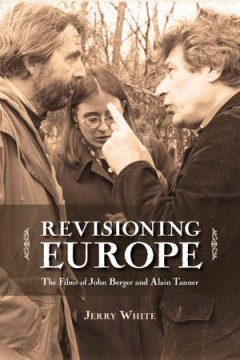
Revisioning Europe: The Films of John Berger and Alain Tanner
Revisioning Europe is among the few existing English-language discussions of the films made by British novelist John Berger and Swiss film director Alain Tanner. It brings to light a political cinema that was unsentimental about the possibilities of revolutionary struggle and unsparing in its critique of the European left, and at the same time optimistic about the ability of radicalism—and ra…
- Edition
- -
- ISBN/ISSN
- 9781552385524
- Collation
- -
- Series Title
- -
- Call Number
- 791.43 WHI r
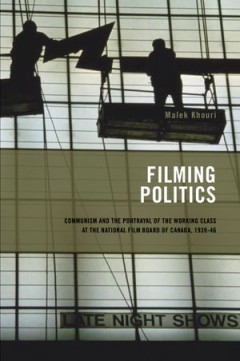
Filming Politics: Communism and the Portrayal of the Working Class at the Nat…
The National Film Board of Canada (NFB) was created in 1939 to produce, distribute, and promote Canadian cinema both domestically and abroad. During the early years of the NFB, its creative output was largely informed by the turbulent political and social climate the world was facing. World War II, Communism, unemployment, the role of labour unions, and working conditions were all subjects feat…
- Edition
- -
- ISBN/ISSN
- 9781552386705
- Collation
- -
- Series Title
- -
- Call Number
- 791.43 KHO f

Drones, Clones, and Alpha Babes: Retrofitting Star Trek's Humanism, Post-9/1
The Star Trek franchise represents one of the most successful emanations of popular media in our culture. The number of books, both popular and scholarly, published on the subject of Star Trek is massive, with more and more titles printed every year. Very few, however, have looked at Star Trek in terms of the dialectics of humanism and the posthuman, the pervasiveness of advanced technology, an…
- Edition
- -
- ISBN/ISSN
- 9781552386675
- Collation
- -
- Series Title
- -
- Call Number
- 791.43 REL d
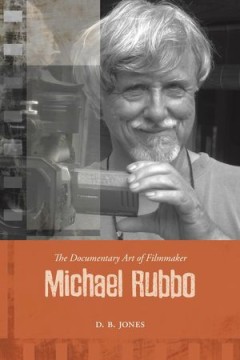
The Documentary Art of Filmmaker Michael Rubbo
Michael Rubbo’s groundbreaking work has had a deep and enduring impact on documentary filmmaking worldwide, though his name has remained relatively unknown. In The Documentary Art of Michael Rubbo, author D.B. Jones traces Rubbo’s filmmaking from his days as a film student at Stanford, through his twenty years at the National Film Board of Canada, where Rubbo developed his distinct document…
- Edition
- -
- ISBN/ISSN
- 9781552388716
- Collation
- -
- Series Title
- -
- Call Number
- 791.43 JON, d
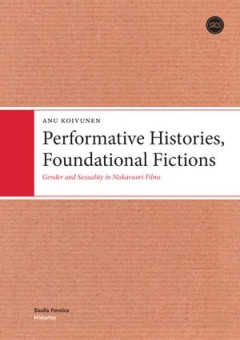
Performative Histories, Foundational Fictions: Gender and Sexuality in Niskav…
"Films are integral to national imagination. Promotional publicity markets “domestic films” not only as entertaining, exciting, or moving, but also as topical and relevant in different ways. Reviewers assess new films with reference to other films and cultural products as well as social and political issues. Through such interpretive framings by contemporaries and later generations, popular…
- Edition
- -
- ISBN/ISSN
- 9789517465441
- Collation
- -
- Series Title
- -
- Call Number
- 791.43 KOI p
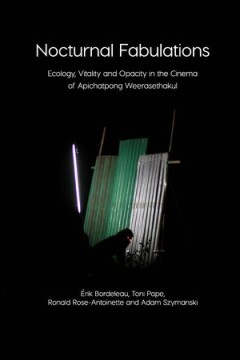
Nocturnal Fabulations: Ecology, Vitality and Opacity in The Cinema of Apichat…
Nocturnal Fabulations is an essay in intercessing. This is not a book that is simply ‘about’ Apichatpong Weerasethakul, though it does engage his work in detail. It is a book that deeply questions what else might be at stake in setting up the conditions for collaboration across two genres: cinema and writing. This collective project is animated by a shared curiosity in the pragmatics of fab…
- Edition
- -
- ISBN/ISSN
- 9781785420405
- Collation
- -
- Series Title
- -
- Call Number
- 791.43 SZY n
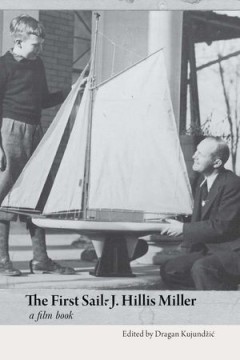
The First Sail: J. Hillis Miller
The film-book The First Sail: J. Hillis Miller is based on the documentary film of the same name made in 2010. The political, academic and environmental contexts surrounding this film since its release prove with more and more urgency the need to read and listen to J. Hillis Miller, and would require revisiting everything that has been said and seen. Together with the film transcript and an int…
- Edition
- -
- ISBN/ISSN
- 9781785420030
- Collation
- -
- Series Title
- -
- Call Number
- 791.43 KUJ f
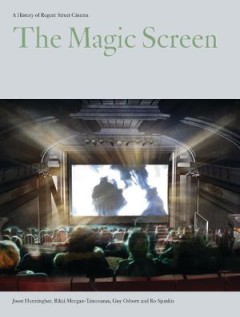
The Magic Screen
The story of the (now restored) Regent Street Cinema is the fourth volume exploring the University of Westminster's long and diverse history. This multi-authored volume tells its history from architectural, educational, legal and cinematic perspectives and is richly illustrated throughout with images from the University of Westminster archive. A print paperback can be purchased direct from the …
- Edition
- -
- ISBN/ISSN
- 9781911534235
- Collation
- -
- Series Title
- -
- Call Number
- 791.43 HUN m
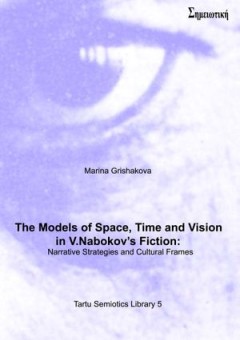
The Models of Space, Time and Vision in V. Nabokov’S Fiction: Narrative Str…
Marina Grishakova belongs to the younger generation scholars of the Tartu-Moscow school of semiotics. Her book is part of a semio-narratological tradition of a single author or a single work research that tackles issues of wider theoretical import: applicability of the concept of “modeling” in the humanities, theory of mimesis and the function of experimental literature in (post)modernist c…
- Edition
- -
- ISBN/ISSN
- 9789949320684
- Collation
- -
- Series Title
- -
- Call Number
- 791 GRI m
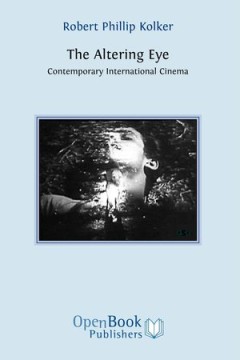
The Altering Eye: Contemporary International Cinema
The Altering Eye covers a "golden age" of international cinema from the end of WWII through to the New German Cinema of the 1970s. Combining historical, political, and textual analysis, Kolker develops a pattern of cinematic invention and experimentation from neorealism through the modernist interventions of Jean-Luc Godard and Rainer Werner Fassbinder, focusing along the way on such major figu…
- Edition
- -
- ISBN/ISSN
- 9781906924058
- Collation
- -
- Series Title
- -
- Call Number
- 791.43 KOL a
 Computer Science, Information & General Works
Computer Science, Information & General Works  Philosophy & Psychology
Philosophy & Psychology  Religion
Religion  Social Sciences
Social Sciences  Language
Language  Pure Science
Pure Science  Applied Sciences
Applied Sciences  Art & Recreation
Art & Recreation  Literature
Literature  History & Geography
History & Geography